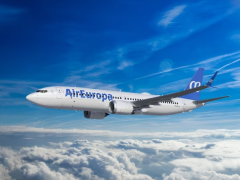Two major international airlines have implemented website usage policies that block agents from making bookings directly on their consumer websites. The move has raised concerns about competition and consumer choice.
Lara Casasola, Owner and MD of Lara Travel, first raised the issue following an incident where she had booked a fare for her client on Virgin Atlantic’s website and paid using a credit card.
Casasola explained that she had booked the tickets for clients through Virgin Atlantic’s website. However, she alleges that the booking was cancelled without notification, with the client only being told at the airport that their tickets were void because travel agents were not permitted to book via the airline’s website.
In correspondence, Virgin Atlantic highlighted its policy, which states: “All bookings where you are acting on behalf of a third party as a commercial entity must be made through the VAA-approved GDS channels. Any bookings made as an agent on our website directly are not allowed and are subject to cancellation as per our Website Usage Policy and fare rules.”
An infringement of consumer choice?
“This policy is dictating where and how travel agents can book, despite receiving full payment upfront. This undermines our ability to secure the best fares for clients and restricts our operational freedom,” said Casasola.
According to Marc Harding, Virgin Atlantic Airways Country Manager in South Africa, the policy was implemented in 2024.
“By accessing our content through approved distribution channels, we can ensure that the partnerships we’ve worked hard to build over the years are maintained, and that we can ensure our mutual customers are getting consistent messaging online with the display guidelines we have previously laid out. Our Ticketing Authority is granted only to agencies who meet our stringent controls to ensure customers know what they are purchasing,” said Harding.
A broader issue
Upon further investigation, Travel News confirmed that British Airways had a similar website usage policy.
BA told Travel News that the policy had not caused any concerns among the carrier’s agent partners, because the airline offered them access to a dedicated platform to making bookings that they could then service.
More competitive fares
However, this does not ease the concerns of agents.
Casasola pointed out that the only reason she used the website to book fares was because it offered her the most affordable fares for her client, compared with the GDS fares offered.
“This could potentially limit advisers’ access to certain fare types or booking channels, which may affect their ability to offer the most competitive options to clients. Travel advisers have expressed concerns about being restricted from accessing what they see as publicly available fares on airline websites,” confirmed Otto de Vries, CEO of Asata.
De Vries said Asata remained committed to supporting fair access to airline content while working within established industry frameworks.
IATA resolution
Asata said it first became aware of the situation in June this year.
According to De Vries, the association reviewed the matter with legal counsel and found that the existing IATA Resolution 890 did allow for these booking policies.
“Airlines are enforcing existing IATA regulations, specifically Resolution 890, which prohibits accredited travel consultants from using customer payment cards on airline websites without explicit consent. This consent forms part of commercial agreements between airlines and agents,” said De Vries.
“Asata continues to advocate for transparent commercial relationships between airlines and agents and maintains that any restrictions should be clearly defined in commercial agreements.”













